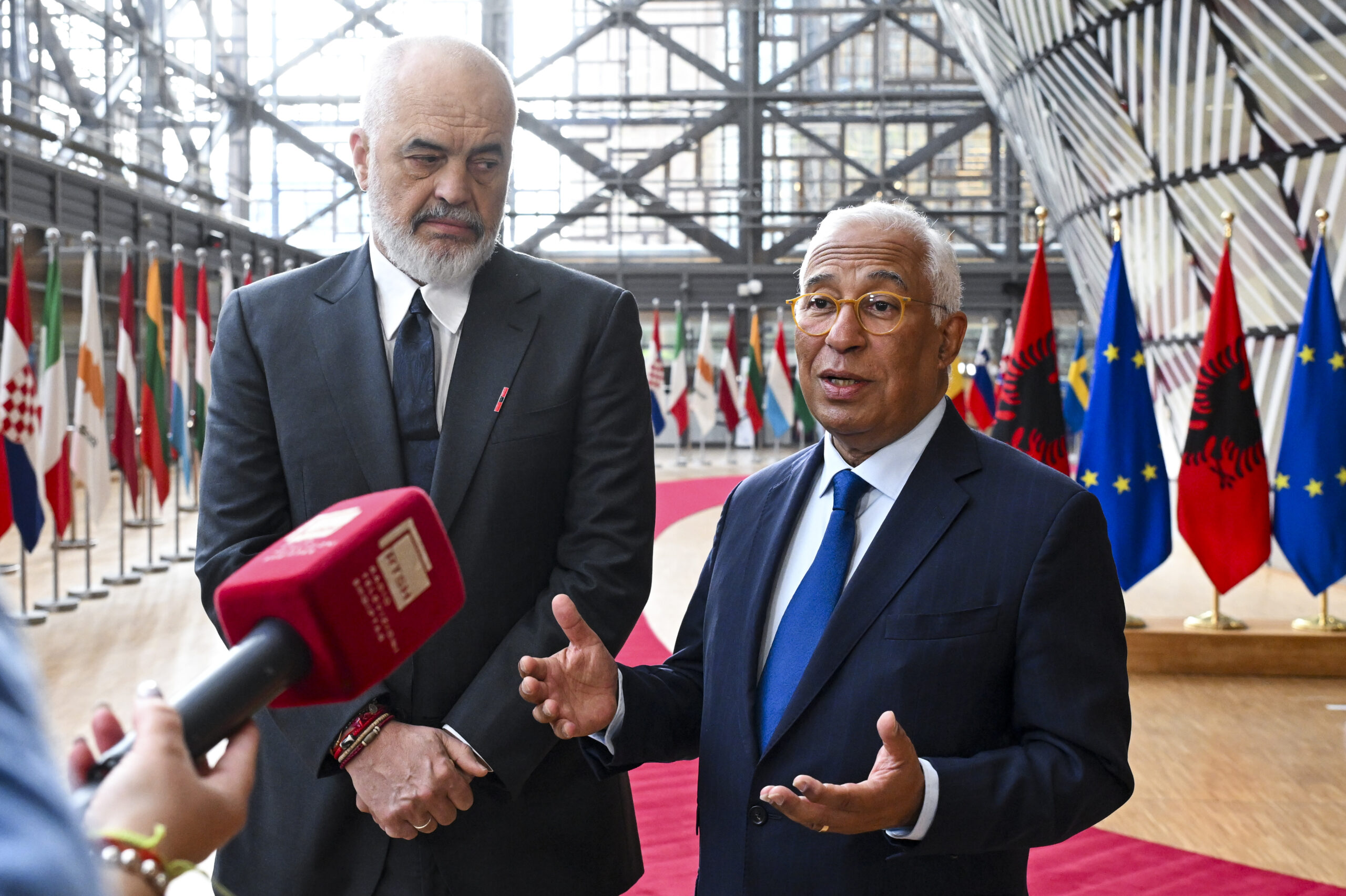Brussels – Tirana does not want to miss the appointment with the new wave of EU enlargement set for 2030. The one that, after years of promises, illusions, and steps back, will concern the Western Balkans. Together with Montenegro, Albania is fast-tracking and setting an example for the six long-term promised partners. Six months after the formal start of negotiations, today (April 14), Brussels and Tirana opened an ambitious new package of chapters to work on in the run-up to accession, that of the internal market.
This morning, Albanian premier Edi Rama met in Brussels with the president of the European Council, António Costa, before going to Luxembourg – where the foreign ministers of the 27 member states are meeting – for the fourth accession conference. In a brief press point before the bilateral meeting, the two leaders emphasized the progress Tirana has made on the accession path, which in just a few months meant that clusters could be opened on the so-called key chapters – covering Judiciary and Fundamental Rights, Justice, Freedom and Security, Public Procurement, Statistics, Financial Control – and on alignment with EU foreign and security policy.
“There are many things to discuss, but overall, I am very encouraged by these developments and really committed to meeting all the commitments in the timetable to conclude negotiations by 2027,” Rama confirmed. It is an ambitious goal that EU Commissioner for Enlargement Marta Kos recently set, indicating Albania and Montenegro as the two candidate countries with “realistic prospects” of concluding negotiations between 2026 and 2027.
Podgorica is further along, having already opened 33 negotiating chapters out of 35, three of which have already been provisionally closed. However, compared to Tirana, it is progressing slowly: the accession negotiations with Montenegro are over a decade old as they opened in June 2012.
Since the European Commission decided to separate Albania’s accession path from North Macedonia, Rama has opened negotiations on 16 chapters. Today’s meeting will start the nine on the internal market, covering the free movement of goods, freedom of movement of workers, right of establishment and freedom to provide services, free movement of capital, corporate law, intellectual property law, competition policy, financial services, consumer and health protection. “Our ambition is to open more during this year; we have a very concrete program, and we want to maintain it,” Costa said.

The European Council president reiterated that enlargement to the Western Balkans “is a clear political priority for the European Union, it is our real commitment with the region, and it is the most important geopolitical investment – for peace, for prosperity, and for stability on our continent.” That is why, within the limits of a Brussels-based “merit” process, it is important not to forget the other countries in the region. Serbia, Bosnia and Herzegovina, North Macedonia, and Moldova are further behind.
The EU is having more trouble with Belgrade. The authoritarian and increasingly unpopular president Aleksandar Vučić has been overwhelmed by mass protests since last November, and in foreign policy, he winks at Moscow and Beijing. Although progress on reforms is slow and fragmented for the other three, the lowest common denominator is alignment with EU foreign and security policy. To send a signal to the region, Costa announced that he would visit all six Western Balkan countries in mid-May.
English version by the Translation Service of Withub









